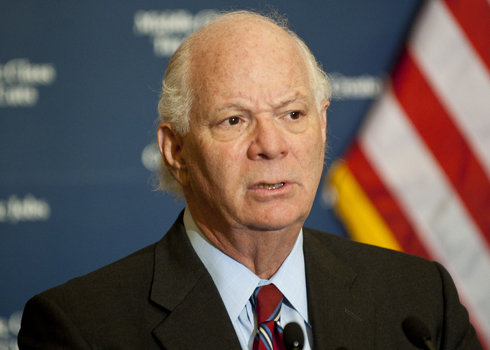WASHINGTON, March 5 - RAPSI. US Senator Benjamin Cardin (D-MD) does not think the Magnitsky Act hinders the development of US-Russian relations. Cardin sponsored the Magnitsky bill in the Senate, although a different wording of the bill was ultimately adopted.
"US-Russian relations are strong enough that we can discuss a wide range of different issues", the senator has told journalists during a US-Russia relations event held at the Senate. He believes that the two countries can still work together in areas of mutual interest.
Other speakers at the event included Russian human rights advocates and politicians, including Moscow Helsinki Group Chairman and legendary Soviet dissident Lyudmila Alekseyeva, co-chairman of the Republican Party of Russia - People's Freedom Party (RPR-Parnas) Mikhail Kasyanov, A Just Russia MP Dmitry Gudkov, and political analyst Lilia Shevtsova.
Cardin said the results of the meeting should be taken into consideration. The US wants Russia to have independent courts and a free press. He told journalists that their work would prove crucial in advancing these goals.
On December 6, 2012, the US Senate approved the Magnitsky Act, stipulating visa sanctions for Russians who are believed by the senate members to have been involved in human rights violations. The law evoked severe criticism from the State Duma.
The bill was introduced by a group of US senators in spring 2012. They suggested compiling a blacklist of Russian officials allegedly linked to the death of Hermitage Capital lawyer Sergei Magnitsky in pretrial detention in Moscow, in exchange for the repeal of the Jackson-Vanik amendment, which had previously hindered US-Russia trade relations.
Sergei Magnitsky, an auditor of the London-based Hermitage Capital investment fund, was arrested on November 24, 2008, on suspicion of having masterminded large-scale corporate tax evasion. He died while in pretrial detention on November 16, 2009, after spending a year behind bars.
According to the Prosecutor General's Office, Magnitsky died of heart failure.
Magnitsky's death evoked an international public outcry, triggered amendments to the Criminal Code and a reshuffling of officials in the penal system.



